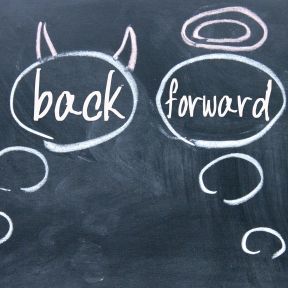
Sex Addiction
Many people enjoy sex, and wish to engage in it more often than they normally do, but persistent sexual desires, thoughts, and behavior can become unwelcome and problematic. A subset of individuals who become preoccupied with sexual fantasies and urges act on these impulses while feeling that they have no control over those actions—repeatedly sending explicit texts and images, for example, or attempting to fondle others without consent. This pattern of behavior is often referred to as hypersexuality or sex addiction, although both the concept and the term are subjects of vigorous debate, and most experts agree that simply having especially frequent sex, or having had sex with many partners, are not in themselves necessarily signs of a problem.
Behaviors that provide opportunities for immediate reward can become addictive. The compulsive pursuit of feedback or reward these activities provide may lead to the neglect of other life goals and create harmful consequences, from the loss of money to the disruption of important relationships. Gambling, for example, is seen as potentially addictive, in that people can become restless or irritable when prevented from gambling, or lie to cover up their actions, or allow the habit to jeopardize work and family. While other behaviors seen by many as addictive—gaming, eating, shopping, porn, and sex—may provide similar feedback and reward pursuit, it has not yet been determined that they meet all of the criteria for addictive behavior.

"Compulsive sexual behavior disorder” has been added to the World Health Organization’s International Classification of Diseases (ICD-11), describing a range of activities including casual sex with multiple partners, frequenting prostitutes, and using phone-sex or online sex-chat services. But the WHO’s decision was controversial, and many psychologists believe that concepts like hypersexuality simply describe perceived problems in regulating one’s thoughts and behaviors related to sex.
There is also wide disagreement over whether hypersexuality stems from a lack of impulse control, a greater-than-average sex drive, some combination of the two, or one’s inner conflict with a moral code that proscribes sexual activity.
With no clear agreement on its validity as a diagnosis, it’s impossible to say how many people actually struggle with compulsive sexual behavior, but some studies estimate the prevalence as between 3 and 6 percent of adults.
Studies have found that many men who identify themselves as “sex addicts” don’t engage in more sexual activity than others, nor do they have different kinds of sex. But they do tend to feel more shame about their sexuality or have more negative attitudes about sex. This may indicate that the concept of sex addiction primarily stems from religious or cultural attitudes and proscriptions about sexuality.
No. Research finds that the belief that one is a sex addict is primarily based on one’s own feelings about their sexual practice. In surveys, such people do not report having sex more often than others who report no issue with their sex lives, and in locations where compulsive sexual behavior disorder is diagnosed, the primary complaint of patients is not sex, but pornography use.
According to some research, the majority of individuals seeking help for sexual addiction or compulsion report problematic viewing of pornography accompanied by compulsive masturbation. But as with those who believe they may be sex addicts, studies of those concerned about their use of pornography find that, on average, they do not generally look at porn more than others do.

Some critics of the idea that sexual addiction is a psychological disorder argue that the behavior may simply be a manifestation of depression or anxiety. The sexual activity could be an attempt to remedy that psychological distress, even though it tends to create its own array of negative consequences, from financial problems to the disruption of relationships and careers. Many clinicians believe that the best treatment for worries about sexual impulsivity is psychotherapy that explores topics like the individual’s feelings, beliefs about self, and past sexual experiences.
Treatment for sex addiction emerged in the 1970s and 1980s and adopted several models used for treating other behavioral addictions like alcoholism such as abstention, confession, and the renouncing of impulses. Today, many therapists reject that model, and treatment for people worried about their sexual impulses is more likely to involve both members of a couple, and less likely to include a prescription of abstinence.
Several prominent figures accused of sexual misconduct, including Harvey Weinstein, have claimed that their behavior was propelled by sex addiction. Prosecutors, victims, and researchers argue that abuse of power, misogyny, and self-destructive urges may be equally likely factors. Yet many defendants have successfully invoked sex addiction in civil, criminal, and family court cases, despite the fact that the DSM-5 does not recognize the condition.
Preliminary research suggests that we may soon have the means to artificially suppress or increase an individual’s libido through the use of non-invasive electrical stimulation. But there are strong ethical concerns about how such technology could be used, ranging from fears that governments could arbitrarily suppress sexual activity, to worries that doctors could use it to repress people’s sexual self-determination.














